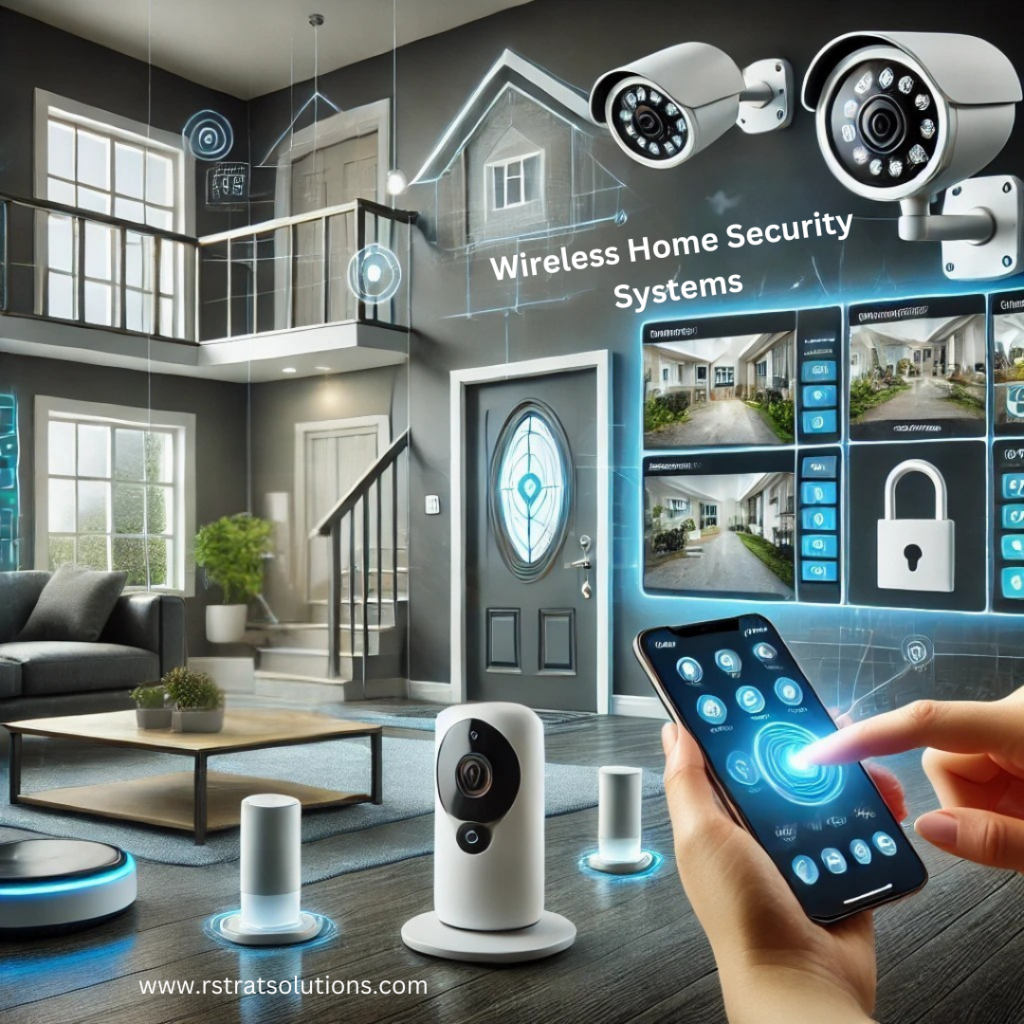
In today’s fast-paced world, ensuring the safety of your home is more important than ever. Traditional wired security systems are becoming outdated, and homeowners are now turning to wireless home security systems for enhanced protection, convenience, and ease of installation. This guide explores the benefits, features, and key considerations for choosing the best wireless home security system for your home.
What Are Wireless Home Security Systems?
Wireless home security systems use WiFi, cellular signals, or radio frequencies to communicate between devices rather than traditional wired connections. These systems include cameras, motion detectors, alarms, and smart locks that can be controlled remotely via smartphones or computers.
Key Components of a Wireless Home Security System:
Control Panel: The central hub that connects all devices.
Security Cameras: Indoor and outdoor surveillance with live monitoring.
Motion Sensors: Detects unauthorized movement.
Door/Window Sensors: Alerts homeowners of any breaches.
Smart Locks: Allows keyless entry and remote access.
Alarm Sirens: Alerts residents and deters intruders.
Benefits of Wireless Home Security Systems
1. Easy Installation & Flexibility
Unlike wired systems, wireless security solutions don’t require drilling or complex wiring, making installation hassle-free. You can also relocate devices easily.
2. Remote Access & Real-Time Monitoring
Most modern wireless security systems offer mobile apps, allowing homeowners to monitor their property in real time, receive instant alerts, and control devices remotely.
3. Enhanced Security with Smart Features
Integration with AI-powered cameras, facial recognition, and smart home automation enhances security. Some systems can distinguish between humans, pets, and moving objects, reducing false alarms.
4. Reliable & Tamper-Proof
Wireless security systems are less vulnerable to physical tampering since there are no exposed wires that intruders can cut. Battery backup options ensure they remain operational during power outages.
5. Scalability & Customization
You can easily add new devices such as extra cameras, motion sensors, or smart locks without rewiring your home.
How to Choose the Best Wireless Home Security System
When selecting a wireless home security system, consider the following factors:
1. Connectivity & Range
Ensure the system supports WiFi, cellular, or Z-Wave connectivity.
Check the range of motion sensors and cameras, especially for larger homes.
2. Video Quality & Night Vision
Opt for 1080p HD or 4K resolution cameras for clear images.
Infrared night vision is essential for 24/7 surveillance.
3. Smart Home Integration
Choose a system compatible with Amazon Alexa, Google Assistant, or Apple HomeKit for seamless automation.
Some systems integrate with smart thermostats and lighting.
4. Battery Backup & Power Source
Look for models with long-lasting battery backup to ensure uninterrupted security during power failures.
5. Professional vs. DIY Monitoring
DIY Systems: Self-monitoring via a mobile app with no monthly fees.
Professional Monitoring: 24/7 surveillance services that alert emergency responders when needed.
6. Security & Encryption
Ensure the system has end-to-end encryption to prevent cyber threats.
Multi-factor authentication (MFA) adds an extra layer of security.
Best Wireless Home Security Systems in 2025
Here are some of the top-rated wireless home security systems available today:
Ring Alarm Pro – Best for smart home integration.
Arlo Pro 5S – Best for high-quality video and AI detection.
SimpliSafe – Best for easy installation and affordability.
ADT Command – Best for professional monitoring services.
Wyze Home Security – Best budget-friendly option with smart features.
Frequently Asked Questions (FAQs)
Conclusion
Investing in a wireless home security system is a smart decision to protect your home and loved ones. With easy installation, real-time monitoring, and advanced security features, these systems offer unmatched convenience and safety. Whether you choose a DIY option or a professionally monitored system, ensure it meets your specific needs for maximum home security.
For expert guidance on wireless security solutions in Dubai, contact RSTRAT Technologies today!


